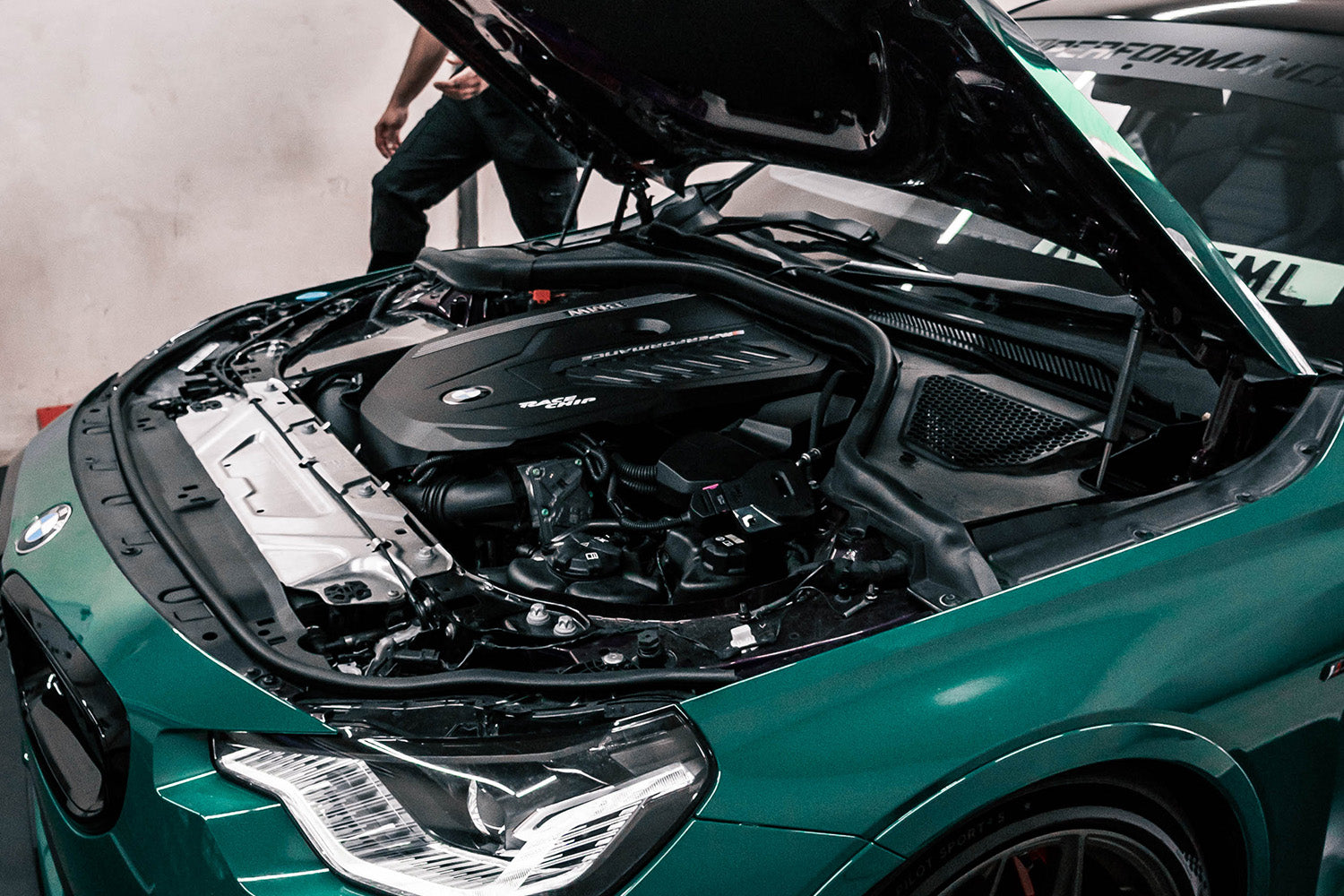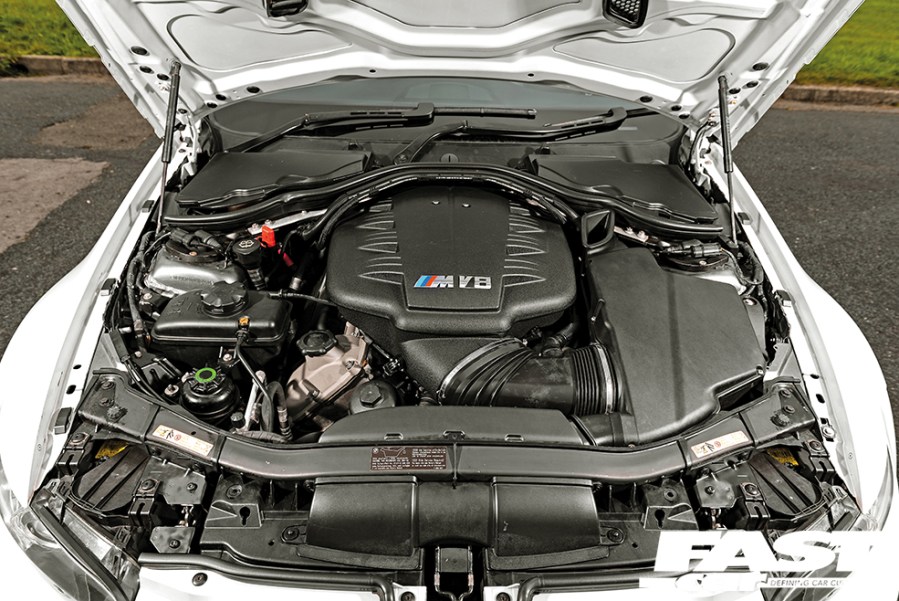A New user's Guide to Picking the Right BMW Engine for Your Needs
A New user's Guide to Picking the Right BMW Engine for Your Needs
Blog Article
Introducing the Intricacies of Next-Generation Power Units: a Deep Study Advanced Engine Designs and Innovations
In the realm of automotive design, the ruthless search of efficiency, efficiency, and sustainability has actually thrust the advancement of power devices to unprecedented elevations. As we base on the precipice of a brand-new era in transportation, the intricacies of next-generation engine layouts beckon us to discover the innovative innovations and technologies that promise to redefine the driving experience. From advanced materials that push the boundaries of durability and weight decrease to innovative turbocharging and supercharging systems that elevate power outcome to brand-new degrees, each component of these power units holds a key to opening the future of vehicle engineering. Diving much deeper into the worlds of discharge control, smart engine monitoring systems, and the perspective of power unit growth, we discover ourselves on the cusp of a transformation that guarantees to reshape the landscape of wheelchair as we understand it.
Advancement of Engine Materials

The shift towards progressed engine products has likewise allowed designers to create engines with greater power outcomes while keeping gas efficiency standards. For example, making use of light-weight materials reduces the general weight of the engine, causing enhanced fuel economic situation and lower emissions. Additionally, improvements in products modern technology have actually permitted for far better thermal monitoring within engines, leading to increased dependability and durability.
Turbocharging and Supercharging Technologies
Just How do Turbocharging and Supercharging Technologies reinvent engine efficiency and efficiency in modern-day automobiles? Turbocharging and supercharging are innovations that significantly boost engine performance by increasing the quantity of air intake right into the burning chamber. Turbocharging accomplishes this by utilizing a generator driven by exhaust gases to pressurize the intake air, while supercharging uses a belt- or chain-driven compressor to attain the exact same impact.
These innovations enable smaller sized, more fuel-efficient engines to create power equal to bigger ones, understood as downsizing. Forcibly even more air right into the cylinders, turbocharging and supercharging boost combustion performance, leading to raised horsepower and torque output without a considerable increase in engine size. This brings about better velocity, hauling ability, and overall driving performance.
In addition, turbocharging and supercharging contribute to improved fuel performance by allowing the usage of smaller engines that consume less gas under regular driving conditions - bmw engine. This mix of boosted efficiency and efficiency has actually made turbocharging and turbo charging indispensable parts of many modern-day engine styles
Emission Control and Environmental Impact
With boosting international concerns pertaining to air top quality and ecological sustainability, the application of discharge control technologies in lorries plays an essential duty in decreasing harmful contaminants launched into the environment. Modern vehicles are geared up with innovative emission control systems that assist lessen visit this site the ecological effect of vehicle procedures. Catalytic converters, for circumstances, are developed to convert toxic gases such as carbon monoxide gas, nitrogen oxides, and hydrocarbons into much less hazardous materials like carbon dioxide and water vapor.
Additionally, improvements in engine innovation, such as the integration of exhaust gas recirculation systems and careful catalytic reduction, have significantly added to decreasing emissions. These innovations operate in tandem to optimize burning effectiveness and lessen the release of damaging contaminants into the air. In addition, the advancement of hybrid and electric lorries stands for a vital step towards lowering the total ecological impact of the transport field.
Intelligent Engine Administration Systems

In addition, these systems allow vehicles to satisfy strict emissions criteria without jeopardizing efficiency, offering an extra ecologically pleasant driving experience. The combination of expert system and equipment learning capacities Related Site in engine administration systems remains to push the limits of what is possible, leading to more enhancements in performance, dependability, and overall automobile efficiency. bmw engine. As automobile modern technology advancements, smart engine monitoring systems will play a crucial function in forming the future of transportation towards a much more sustainable and reliable direction
Future Trends in Power System Growth
As intelligent engine administration systems lead the way for improved control and optimization in contemporary automobiles, future fads in power unit advancement are positioned to redefine the landscape of auto propulsion technologies. One of the essential patterns driving advancement in power system advancement is the change in the direction of electrification. With an increasing concentrate on sustainability and decreasing carbon discharges, crossbreed and electrical powertrains are coming to be more prevalent in the automotive industry. These alternate power resources use boosted performance and efficiency while aligning with strict ecological regulations.
Another substantial pattern is the integration of advanced materials and making strategies. Light-weight products such as carbon fiber and find out here light weight aluminum are being utilized to minimize overall vehicle weight, boosting gas efficiency and efficiency. Additionally, advancements in 3D printing and additive manufacturing are enabling the manufacturing of complicated engine components with greater accuracy and resilience.
Furthermore, fabricated intelligence and artificial intelligence are playing a vital function in optimizing power device performance. These modern technologies enable real-time monitoring and flexible control, resulting in much more dependable and reliable power delivery. On the whole, future trends in power device development are geared in the direction of sustainability, efficiency, and performance, driving the vehicle sector towards a new period of propulsion technologies.

Final Thought
In final thought, the innovations in engine products, turbocharging, emission control, and intelligent administration systems have actually led the means for next-generation power devices. The complex layouts and developments in contemporary engines display the recurring development of auto technology.
Exploring the modern improvements in engine products has actually been crucial in boosting the performance and performance of contemporary engines. Over the years, the evolution of engine materials has played an essential function in pushing the limits of what engines can accomplish.The shift towards advanced engine materials has also allowed engineers to develop engines with higher power outputs while preserving fuel efficiency standards.The implementation of intelligent engine administration systems in modern cars has transformed the way engines are regulated and maximized for efficiency and effectiveness. By gathering data in real-time and assessing it with innovative formulas, intelligent engine management systems can adjust to driving designs, ecological elements, and engine health to maximize power result while lessening fuel consumption and discharges.
Report this page